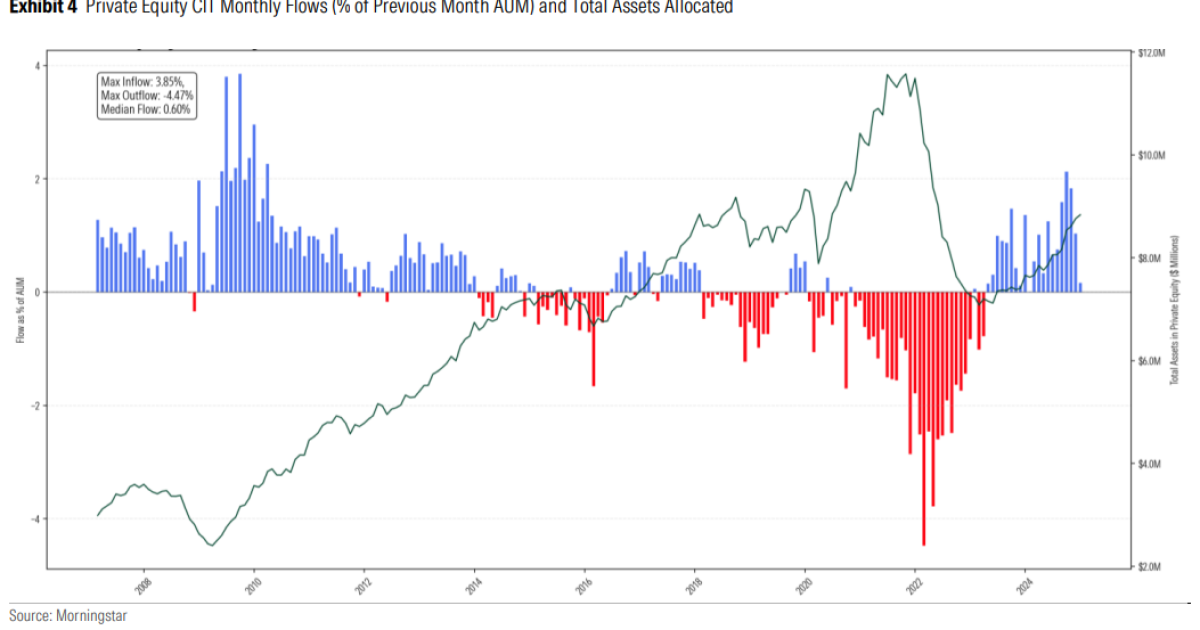Anarcho-capitalism is a libertarian vision of a stateless society, where security, law and dispute resolution would be provided by private, for-profit companies. Proponents of this system believe that it would be both more ethical and more effective than the state. However, not everyone is convinced. Critics of anarcho-capitalism have raised serious doubts about the feasibility of such an order. I discussed these briefly in a previous article. In subsequent articles, I will delve deeper into these concerns and present the responses of anarcho-capitalist theorists. First, we will address the most immediately obvious objection: that companies providing consumer protection—so-called private defense agencies—will refuse to settle disputes peacefully among themselves.
In an anarcho-capitalist order, the basic institution would be private defense agencies (PDAs). These agencies would be responsible for ensuring that individuals’ rights to freely manage their bodies and justly-acquired property are respected. Many PDAs would compete with each other in the marketplace, and each individual would sign a contract with the agency offering the most advantageous terms at that particular moment (the ability to change agencies is central to the system). Anarcho-capitalist theorists speculate that PDAs would perform four functions. First, (1) they would protect their clients from violence (security function). (2) If a crime occurred, they would try to identify the perpetrators, enforce compensation from them, and bring them to justice (policing function). (3) The agencies would also represent clients in legal disputes (legal representation function). Finally, (4) PDAs would act as insurance companies, paying compensation to clients whose rights were violated (insurance function).
Now, let’s consider what would happen if a crime were to occur. Suppose someone broke into A’s house and stole a TV. As soon as A realized that they had been burgled, they would notify their agency (PDAA). The agency would compensate A and then try to determine who was responsible for the crime. The agency would have a strong economic incentive to do so, as the perpetrator would have to compensate for the damage caused once caught. Let us assume that the agency obtained evidence that B was the perpetrator. In this situation, PDAA representatives would report to PDAB, presenting evidence of B’s guilt and demanding the return of the TV, as well as compensation for the burglary.
According to critics, a potentially fatal flaw in anarcho-capitalist theory emerges at this point. They point out that the PDAB would refuse to compensate for losses caused by its client, announcing that, should the PDAA attempt to obtain compensation from B by force, the PDAB would defend B with all its might. A less sophisticated version of the argument suggests that the agencies would be unable to reach an agreement. A more sophisticated version of this argument asserts that they would not want to agree due to the economic incentives built into the system: ultimately, the better an agency defends its clients (even when they are guilty), the more clients it will have. This objection was first raised against Gustav de Molinari, who proposed a system of private security production in 1849. More than a century later, this objection was famously repeated by Ayn Rand, an advocate of the minimal state. For Rand, it was obvious that, in the absence of a third party—the state—PDAs would be unwilling (and unable) to resolve disputes between themselves, resulting in an escalation of violence. According to Rand, anarcho-capitalism would simply transfer Hobbes’s “war of all against all” from individuals to the agencies protecting them.
How do anarcho-capitalists respond to this? They believe that, in such a situation, events would unfold very differently. Rather than “declaring war” on the PDAA, the PDAB would analyze the evidence it provided. If PDAB found B’s guilt to be indisputable and deemed the compensation proposed by the PDAA to be appropriate, it would agree to pay the compensation or allow it to be enforced against B, ensuring that he was not harmed in the process. However, if it deemed B’s guilt uncertain or the compensation excessive, it would propose referring the case to a private court. The court would then decide on fault and award appropriate compensation. In other words, anarcho-capitalists believe that PDAB would choose peace, agreement, and cooperation over war.
Why would that happen? Would it be because the CEOs of the agencies are virtuous people? Or because anarcho-capitalists assume that people are inherently good? No. The reason is that this approach would be most profitable for PDAs. According to anarcho-capitalists, the best long-term, profit-maximizing strategy for security agencies would be to protect non-aggressive clients effectively. The optimal situation would be for agencies to receive a steady stream of money in the form of premiums, while ensuring that their clients engage in as few conflicts—especially violent ones—as possible so that their protection incurs minimal costs. When a conflict arises, the agencies would work together to determine who was at fault, enforce the cessation of wrongful actions, and ensure compensation was paid. Of course, agencies would compete with each other to attract as many clients as possible, but this competition would be economic in nature.
There are several reasons why this modus operandi seems most likely for agencies. First, solving problems with violence is costly, contingent, and risky, whereas cooperative solutions are cheap, predictable, and safe.
Second, firms can only provide what is of greatest value to most of their clients—safety—by cooperating with each other. An agency that wanted to protect its clients even when they were guilty would jeopardize its cooperative relationships with other PDAs. This would place its clients, especially those who do not want to initiate violence—the vast majority—in a significantly worse position. Other agencies would respond in kind, allowing their clients and employees to use violence against those of the offending agency. Consequently, most of that agency’s clients would find themselves in a worse situation than if the agency, like others, only protected its clients when they were in the right. This could result in a significant proportion of the aggressive PDA’s clients switching to cooperating agencies. It is in every client’s interest to be with an agency that punishes aggressors and cooperates peacefully with the largest possible network of like-minded agencies.
Third, this problem would be exacerbated by adverse selection. An agency that defended its clients when they were in the wrong would attract clients who wanted to initiate violence, while those who wanted to live peacefully would leave. However, this solution seems unstable for two reasons. First, such clients are much more difficult and costly to protect. Second, such clients are much fewer in number and, on average, less productive.
Fourth, such an agency would experience conflicts between its own clients. Believing that the agency would always protect them, they would constantly clash with each other, and the agency would have to resolve these conflicts.
Fifth, an agency that chose this path would incur additional costs because, instead of resolving conflicts peacefully, it would start protecting clients, even when they are the aggressors. This would result in some staff leaving and the need to increase the salaries of those remaining significantly. Imagine your boss suddenly informs you that, from tomorrow, you will no longer be catching thieves, murderers, and rapists, but protecting them instead. You would probably quit your job immediately. Or, if you were a psychopath, you might ask for a pay rise. But that’s only part of the cost. What about insurance costs? What about the costs resulting from your company being ostracized by others (not just PDAs)?
These problems would put strong pressure on security agencies to cooperate with each other, only protect their clients when they are innocent and allow them to be appropriately punished when they are guilty. It would be very difficult for a single agency to deviate from such an equilibrium. Suppose one agency decided not to cooperate with the others, but instead to defend its clients even when they were guilty. Not only would such a company experience a radical increase in operating costs, an outflow of peaceful clients, and an influx of bad risks, but it would also face radical resistance from all other PDAs. Its situation would be unenviable.
Importantly, the system protects against companies seeking to dominate others by refusing to settle disputes peacefully, as well as against fraud and abuse in relations between agencies. It may seem that it would be profitable for each agency to cheat the other agency each time and tip the scales in favor of its client. However, by doing so, the agency risks disrupting its peaceful, cooperative relationship with the other agency. The profits from such one-off fraud would be much lower than the losses resulting from disrupting these peaceful relations. Relations between security agencies are best viewed as a series of repetitive exchanges involving relatively small sums, which occur in the absence of a third party enforcing contracts (the state). In such exchanges, either party can cheat the other as neither party can be forced to act honestly. However, as game theory indicates, the parties to the contract will not cheat because the profit from one-off fraud is disproportionately small compared to the losses resulting from disrupted or terminated long-term cooperation. Moreover, this mechanism of self-enforcing contracts is greatly reinforced by reputation. A company that gains a reputation as a cheater will lose out because all other companies will scrutinize its every move in the event of a dispute, generating high costs.
The theory of anarcho-capitalism is based on the idea that it is more profitable to protect productive individuals from unprovoked violence than to protect unproductive individuals from justified retaliation. It is also founded on the idea that resolving a single dispute fairly, quickly and effectively enables subsequent disputes to be resolved in the same way. When you think about it, this must be true.
Although the idea of universal interagency warfare seems fairly obvious at first glance, on further inspection this claim—essentially asserting that fighting is more profitable than collaboration and that it is more lucrative to protect unproductive aggressors than productive peaceful individuals—seems increasingly unconvincing. The obvious starts to look ridiculous. There are some good arguments challenging the feasibility of anarcho-capitalism. However, this does not appear to be one of them.


























